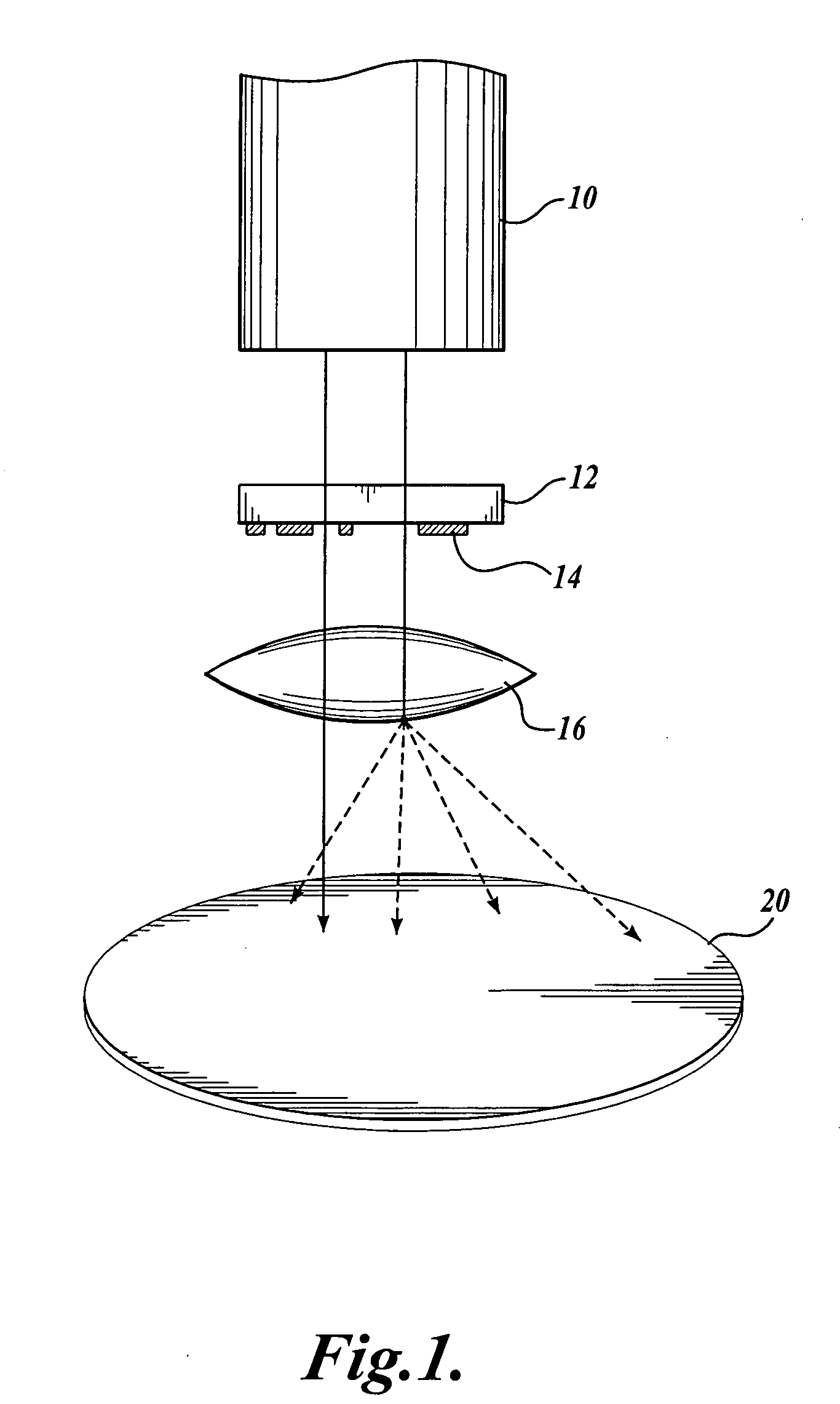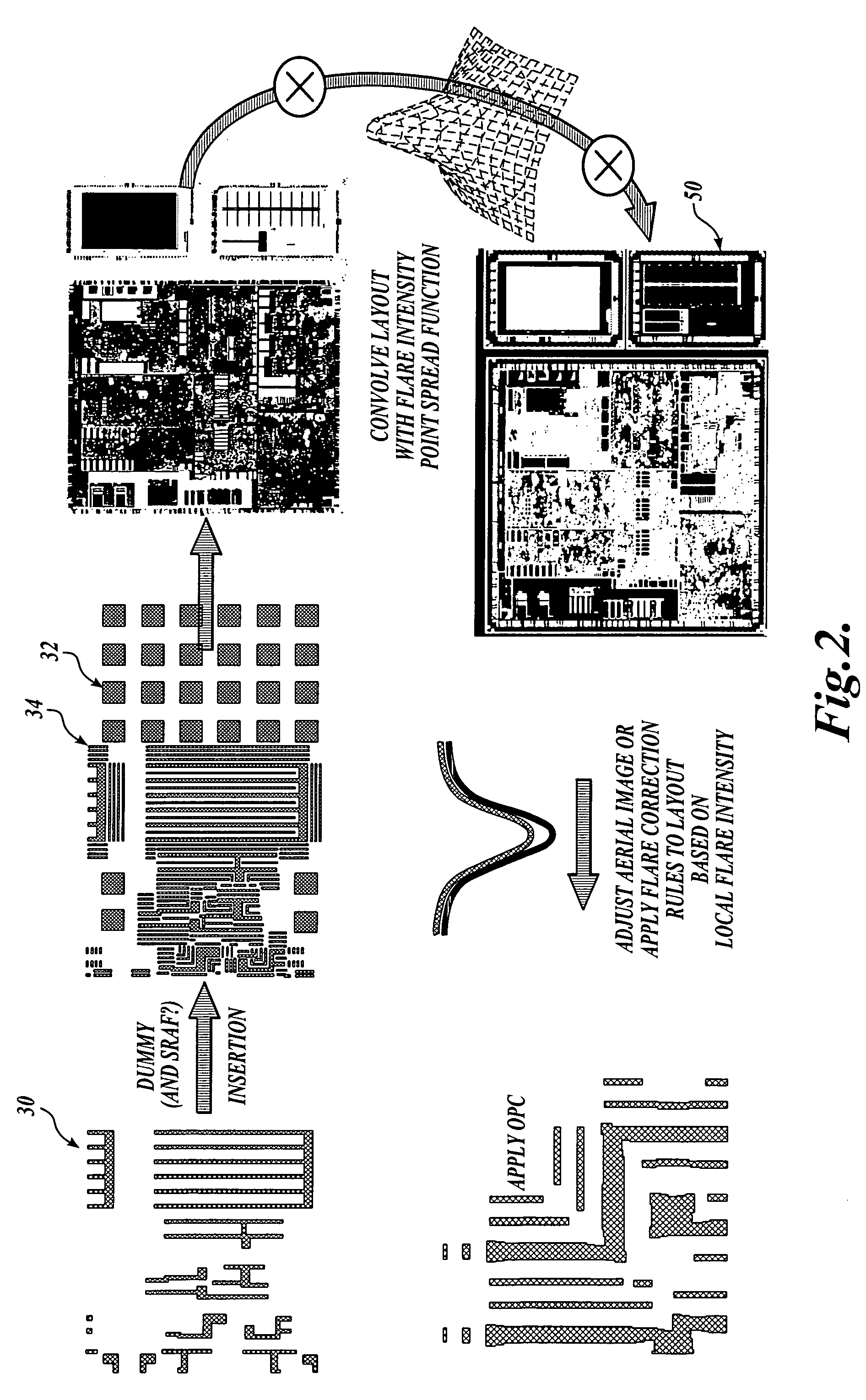Long range corrections in integrated circuit layout designs
- Summary
- Abstract
- Description
- Claims
- Application Information
AI Technical Summary
Problems solved by technology
Method used
Image
Examples
Embodiment Construction
[0013] As indicated above, the present invention is a method for compensating for long range variations such as flare intensity across a layer of an integrated circuit or other device to be created with a photolithographic process.
[0014]FIG. 1 is a simplified illustration of a photolithographic imaging system. A light source 10 provides illumination light or electromagnetic energy that is delivered through a mask or reticle 12 that includes a pattern of features 14 to be imaged on a semiconductor wafer 20. Upon exposure of the semiconductor wafer to the illumination light through the mask 12, selective areas of photosensitive chemicals on the wafer are exposed. These exposed areas are then chemically and mechanically processed and polished in order to produce the desired pattern of circuit elements on the wafer.
[0015] If the illumination system were flawless, a single point of light originating from the light source 10 would pass through the mask 12 and a lens system 16 to be dire...
PUM
 Login to View More
Login to View More Abstract
Description
Claims
Application Information
 Login to View More
Login to View More - R&D
- Intellectual Property
- Life Sciences
- Materials
- Tech Scout
- Unparalleled Data Quality
- Higher Quality Content
- 60% Fewer Hallucinations
Browse by: Latest US Patents, China's latest patents, Technical Efficacy Thesaurus, Application Domain, Technology Topic, Popular Technical Reports.
© 2025 PatSnap. All rights reserved.Legal|Privacy policy|Modern Slavery Act Transparency Statement|Sitemap|About US| Contact US: help@patsnap.com



